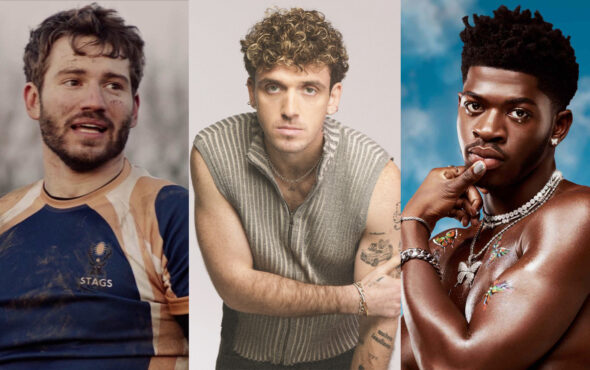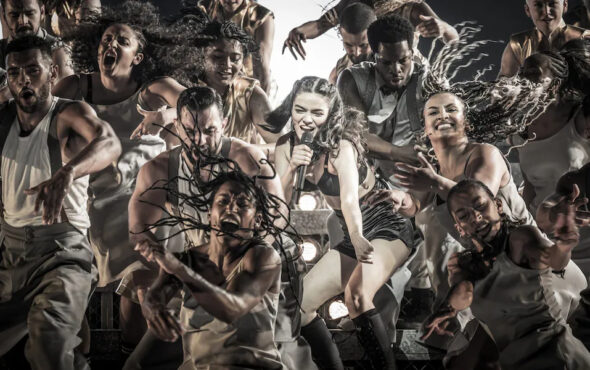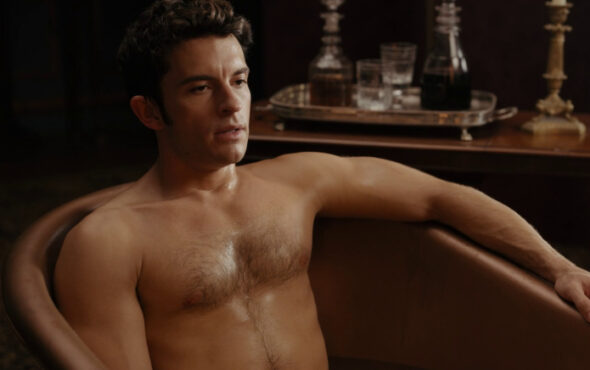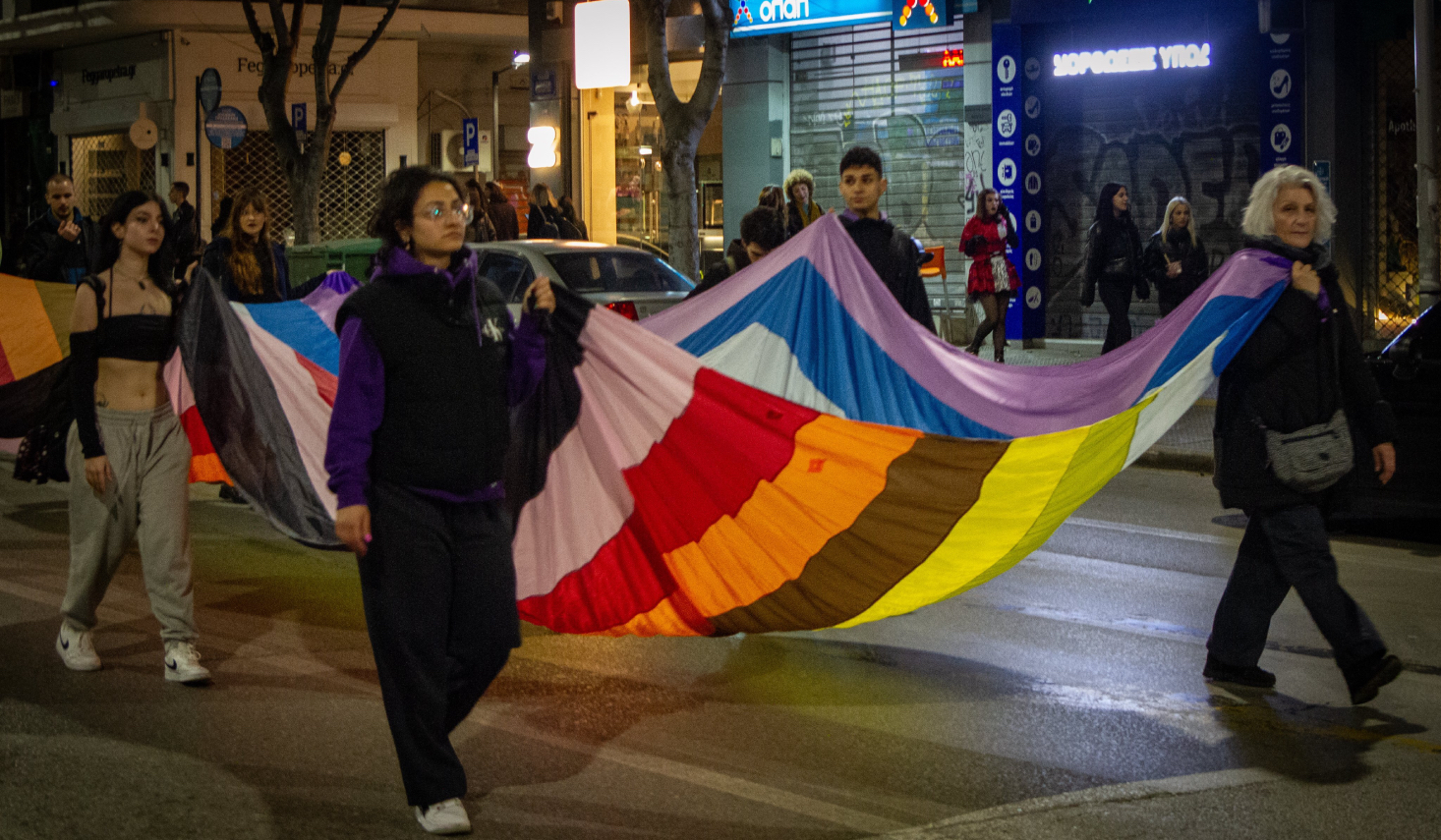
A recent attack on a young trans couple in Greece has left LGBTQIA+ people shaken, with some describing the incident a reminder of how “extremely polarised” the country is on equal rights. A mob of almost 200 people cursed, spat and threw bottles at the pair in Thessaloniki on Saturday (9 March) night, resulting in the arrests of more than 20 people. Thousands took to the streets in protest of what happened the following evening, though the LGBTQIA+ community’s concerns are far from quashed.
“Greece is a very homophobic country,” says conceptual artist and filmmaker Fil Ieropoulos, who was born in Athens and raised in northern Greece. “It’s a very macho, traditionalist, fundamentalist, religious place where racist, homophobic, misogynist, transphobic behaviours have been tolerated for way too long. One should not be fooled by the pinkwashing of the whole bourgeois Mykonos thing or silly ideas about supposed connections to homosexuality through Ancient Greece.”
View this post on Instagram
Greece is considered to be one of Europe’s most socially conservative countries, with the Orthodox Church continuing to hold a lot of influence there. It still believes in the so-called ‘traditional’ family model and views homosexuality as a deviation from what it considers ‘normal’, which means advances towards LGBTQIA+ equality are often met with hesitation from queer communities. Last month, however, Greece became the first Orthodox Christian country to legalise same-sex marriage as it also expanded equal parental rights. The bill passed with 176 votes for and 76 against in what was hailed at the time as “a milestone for human rights” by Prime Minister Kyriakos Mitsotakis – though Ieropoulos feels less optimistic.
“The same-sex marriage stuff is a bit of a smokescreen,” he tells GAY TIMES. “The new laws really benefit the very few and wealthier of our communities. Life is still hard for most queer people here, especially trans and non-binary people and those that don’t look ‘normative’ enough to be accepted by the government’s neoliberal agenda. The current New Democracy conservative party appears supposedly interested in human rights (in a David Cameron-esque ‘gay marriage as a conservative institution’ fashion), while it still keeps strong ties with the Orthodox Church and includes far-right figures in its ranks. In such a messy set-up, LGBT visibility comes at a price.”
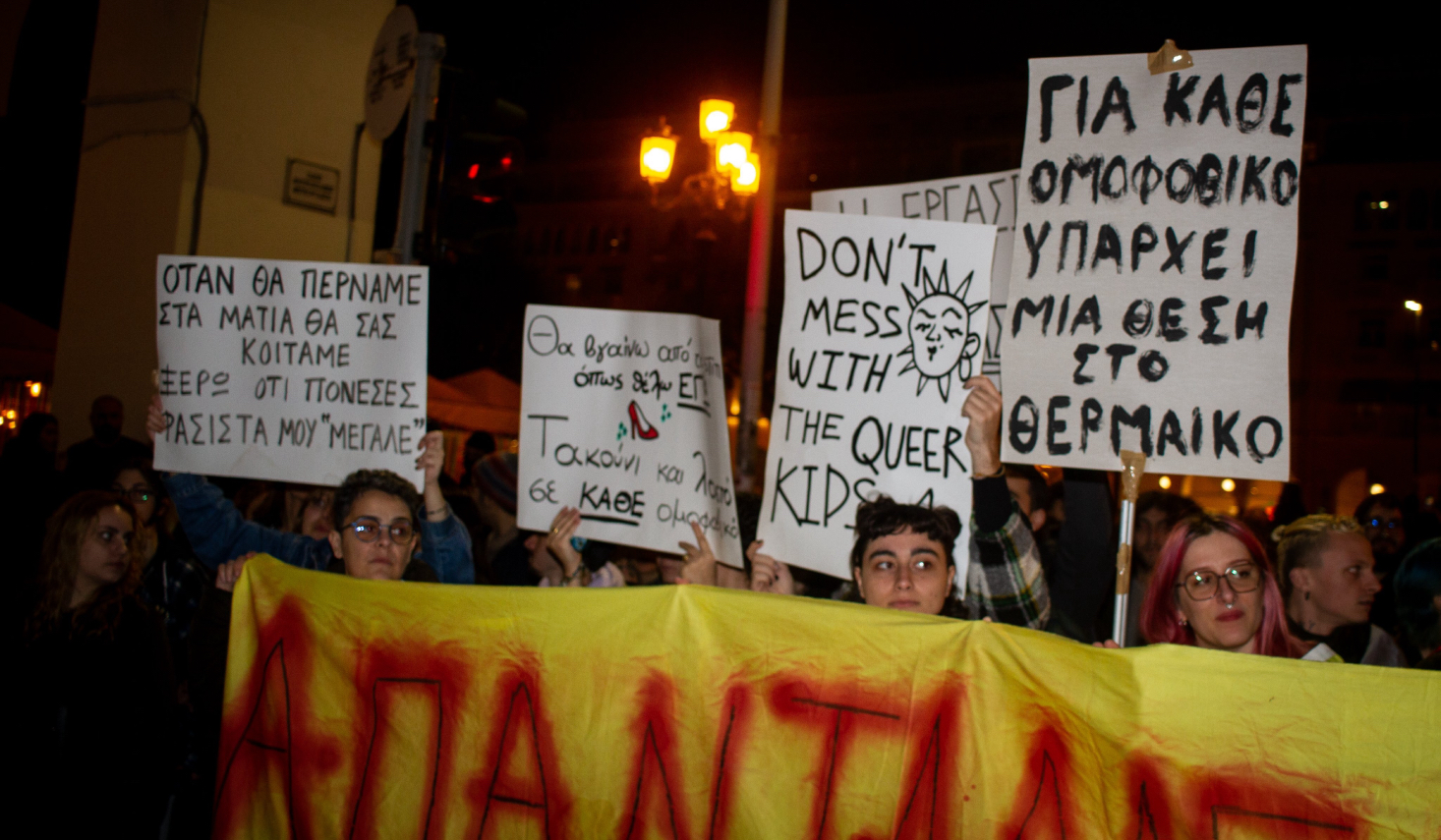
This summer, Thessaloniki is set to host EuroPride, a pan-European celebration held in a different city each year. Hundreds of thousands of LGBTQIA+ people and allies usually travel to the host destination for the festivities, which have previously been held in the likes of Malta, Denmark and the UK. Apostolis Karabairis, Director of Thessaloniki Pride, says that authorities “reached out” to his organisation the day after the trans couple were targeted, giving him optimism that this year’s event will go ahead safely and securely.
“The appalling incident is unprecedented, because it involved a spontaneously gathered mob that indulged in ‘social media violence’ to show off. I’m afraid it reflects some of the current issues the youth are facing,” he writes to GAY TIMES in an email. “Despite the hideous homo-transphobic crime, thousands of Thessalonicans came out on the very next day to protest and make it clear that fear has no place in our city.”
Ieropoulos is this week playing his ‘Avant-Drag!’ film at the Thessaloniki Documentary Festival, which explores the drag scene in Athens, though he says he has been feeling anxious about doing so given that it is “very political and the climate is very hostile” in the city.
“It’s a very political kind of drag that we present, it’s not a RuPaul entertainment situation – rather, think of the early days of drag. Since Athens is a dangerous place for queers, its drag is also more dangerous in itself, it is more politically involved, as the stakes are higher,” he explains. “So, to be honest, we are rather worried about our premiere, we have to brace ourselves for the possibility of fascists showing up. But we knew it all along that making a film like this would be a dangerous feat and we are here to defend it. And at least we have seen that there was a huge demo in Thessaloniki just after the attack in which a large part of the city made it clear that they do not want to live in a state of fear.”
